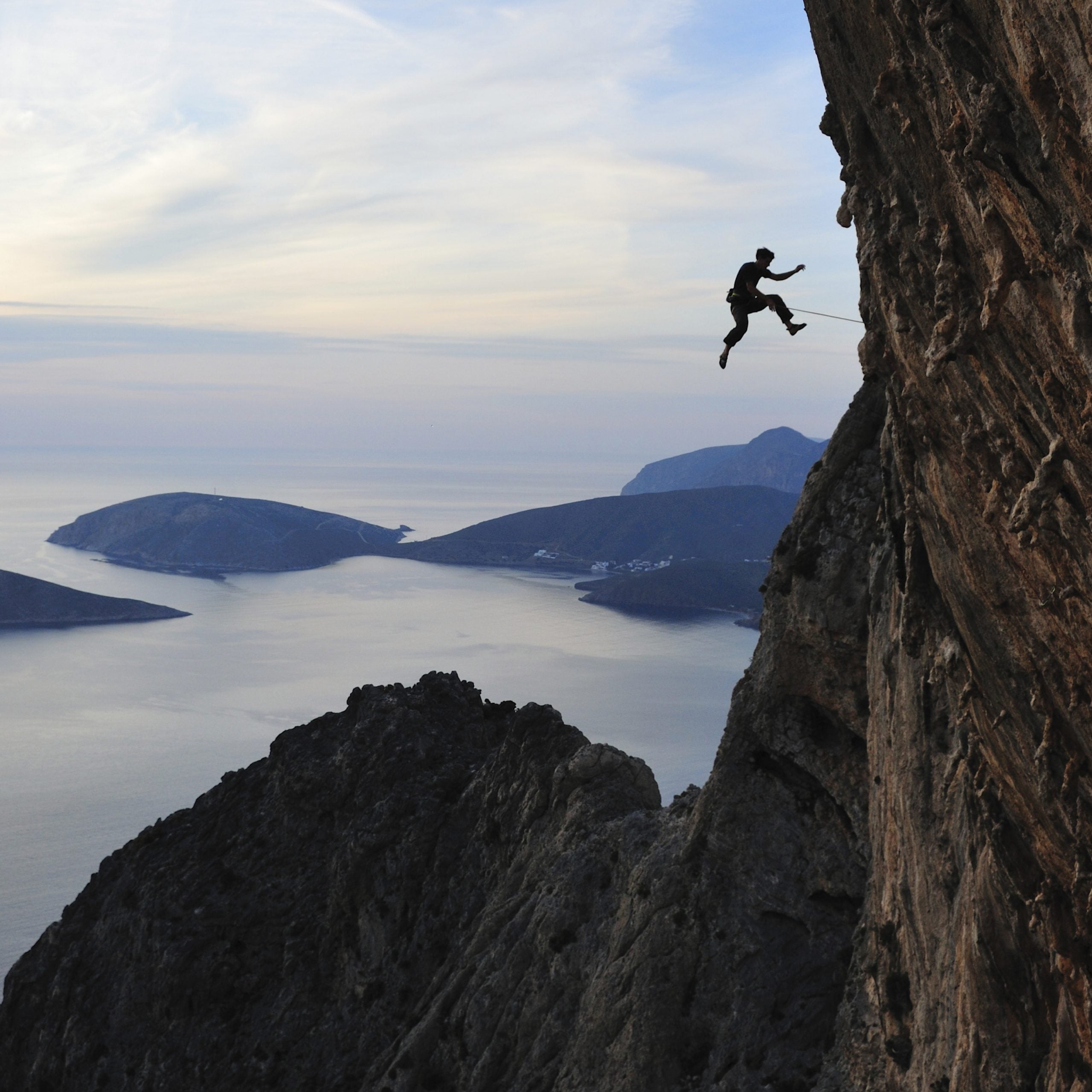There’s a longstanding assumption behind most of the research on extreme athletes: “Clearly, something's wrong with them.”��
That’s what Eric Brymer, a researcher at Leeds Beckett in the UK, has seen for most of his career. Why else would anyone willingly participate in an activity that is quite literally defined by its high levels of perceived risk? What could motivate that kind of behavior? Extreme athletes, the academic literature suggested, are “adrenaline junkies” with “death wishes,” Brymer says. “They’re crazy people, not like normal people.”
Motivation is a curious thing, especially when it comes to pastimes much of society thinks are dangerous. George Mallory’s response to that tired question—Why climb Everest?—is as telling as it is inscrutable. Many of us don’t have a better��answer for why we want to conquer those rapids or nail that slab or bag that peak��than Mallory’s “Because it’s there.” For the “normal people” who have no interest in paddling down waterfalls, it’s easy to see how the “death wish” narrative took hold.
“It’s more than the quick hit of adrenaline. It’s personal.”
Brymer was finishing his masters in sports psychology from the University of Liverpool 10 years ago and working at an adventure camp when he realized this view dominated the field. “I knew quite a lot of people participating in high levels of extreme sport—most people were very careful and took years to develop their skills,” he says. “I knew people who were highly, highly skilled at white water, but they stuck to Class IV.” Of all the mountain climbers and free divers and base jumpers he knew, he didn’t see many recklessly tempting fate. “There are many easier ways to die,” he says. “Why would you do these things if you were trying to die?”
Brymer has since��. He’s an expert in the field and his new book, , debunks many of the clichés behind what makes adventure athletes tick. Extreme athletes don’t get off on taking risks or that rush of adrenaline, he says. From interviews with dozens of athletes, Brymer and his co-author Robert Schweitzer discovered that, instead, .��“There’s an ineffable aspect people find very difficult to describe,” Brymer says, “a feeling of coming home.”��
This “ineffable” nature may explain why it’s been so hard for researchers to nail down why we participate in so-called risky sports. Psychologists developed a “sensation-seeking scale” in the early 1970s: ever since it’s been easier for researchers to concentrate on the thrill-seeking aspect of extreme sports. Researchers have dived into the genetics of extreme athletes, examining whether exposure to high levels testosterone in utero promotes risk-taking or if we’re born with an “adventure” genotype. But searching for what differentiates extreme athletes from “normal folks” ignores a key trend line: in the last thirty years, adventure and extreme sports have become more and more popular. While participation in traditional team sports declines, climbing and surfing and kayaking have all seen record growth.
“Once upon a time this used to be called being alive—living without know what was going to happen next.”
Still, motive has been little studied, says Emma Barrett, a researcher at Lancaster Univeristy and the author of . “There is a lot of stuff out there about sensation-seeking and risk-taking and it’s all interesting stuff, but motivation is such a complex and multifaceted thing.” That’s what makes Brymer’s research “terrific” and “unique,” Barrett says.��
So what drives us to keep doing these sports, despite the inherent risks? Brymers work—and done by John Kerr out of the University of British Columbia and Susan Mackenzie from the University of Idaho—suggests one of the most powerful motivators is something any athlete knows: these sports are hard and much of the satisfaction comes from the grind, and the satisfaction that comes from nailing that backside cutback on the wave after a hundred failed tries.��
Another interesting response that researchers heard from athletes again and again: they don’t consider their “extreme” sports risky. Wingsuit fliers and pro climbers spend a huge amount of time trying to minimize risks. They “learn everything possible about the sport; learn about weather conditions, learn about wind, learn about what wind does in and around buildings and structures and cliffs,��so you know what you can do and what you can’t do,” one BASE jumper told Brymer. Although they’re under no illusions about the risks—“Imagine if every time you missed a basket, somebody would shoot you in the head,” one extreme skier said—they believe they have done all they can to mitigate them through hard work and focus.��
Of course, the risk is real. The parade of obituaries for pro climbers��and top-level BASE jumpers��shows this with frightening frequency. ��And, Barrett says, some people are likely motivated by that dopamine rush or the thrill of risk.��
For Alex Honnold, perhaps the most impressive, unflappable solo climber to ever live, it depends on how you define risk. “If risk is defined as anything with an uncertain outcome, I’m certainly taking risks, yeah,” he says, but “I don’t think that I have a death wish. I’m not trying to go out and kill myself.”
So, why does Honnold do it? “It’s hard to define” he says. “Ten years ago I’d just say because it’s rad or badass to sound like a hero, but now I can give a slightly subtler interpretation. I typically define it as deep satisfaction. A sense of well-being. I’m searching more for that feeling of having done something well and being deeply content—it’s more than the quick hit of adrenaline. It’s personal.”


